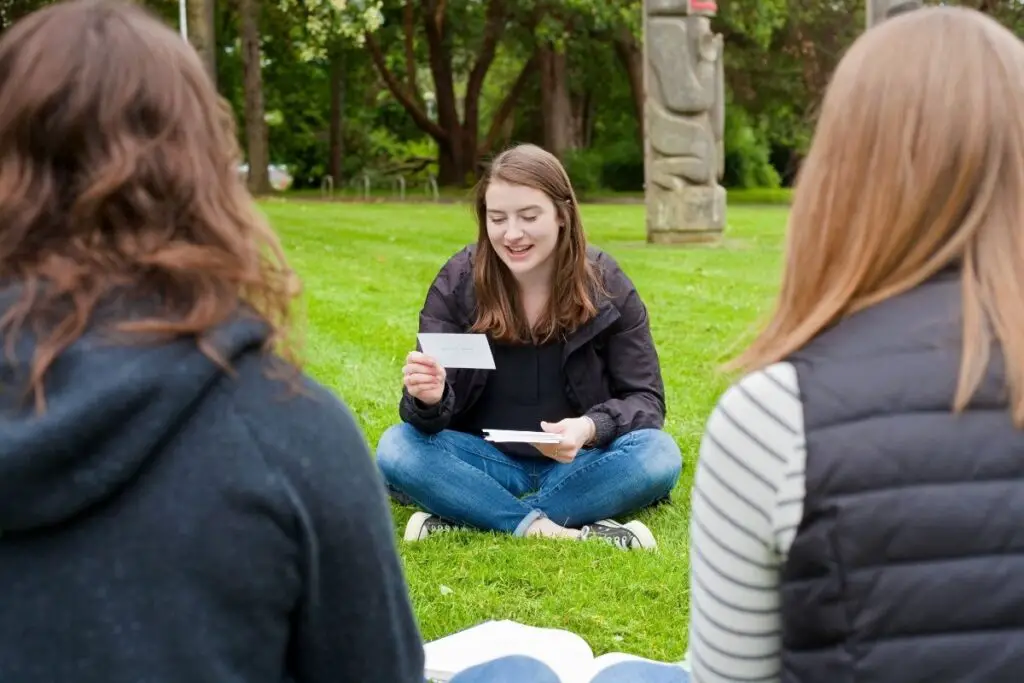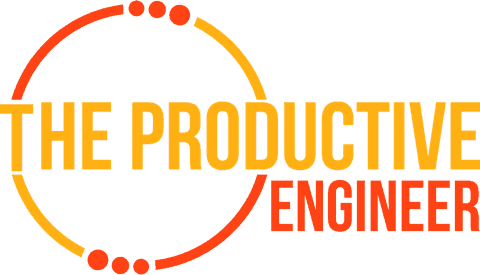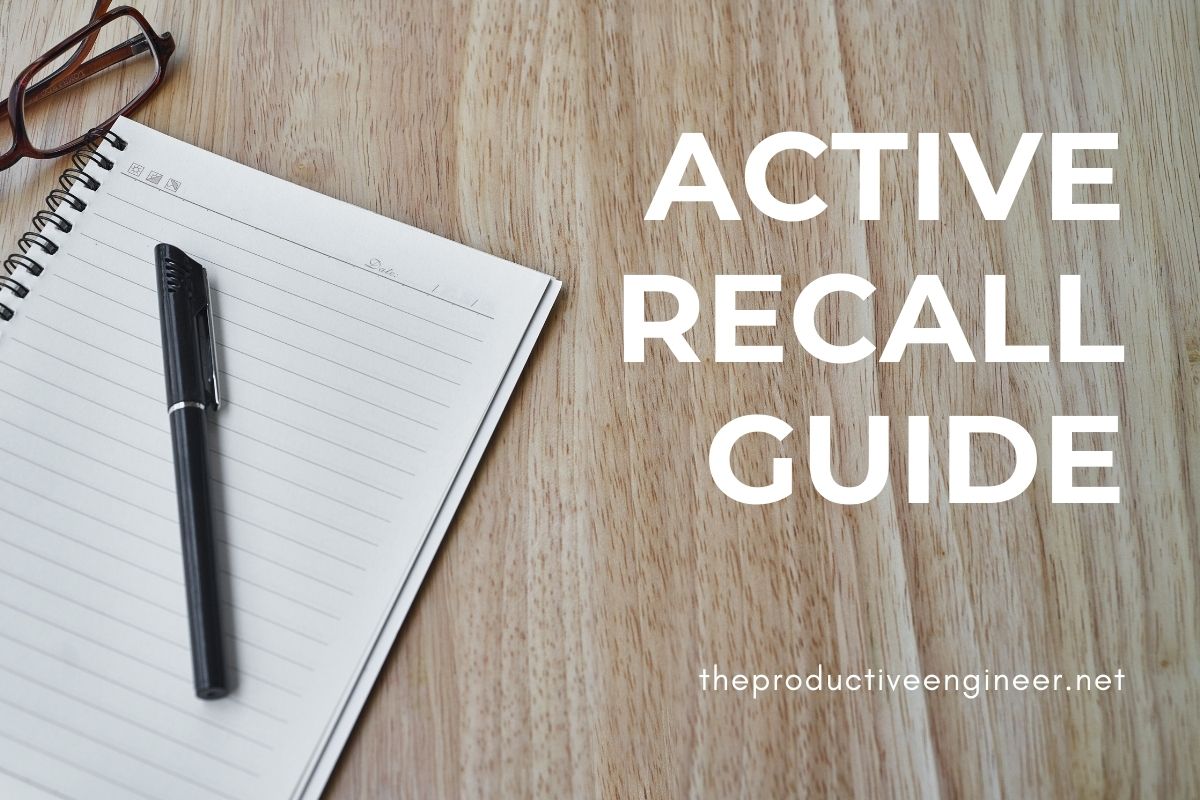Active Recall: The Best Way to Study
Studying is a tedious task, but active recall makes studying for a test much easier. Active recall involves going back and forth between active participation in the material you are trying to learn and recalling that information later on. This article will cover why active recall is so effective at making your studying more efficient and how to use active recall to improve your studying.
But what makes active recall so effective for studying? Listed below are the reasons why active recall is an effective study technique:
- active recall is active work
- active recall makes studying more engaging and interesting
- active recall creates a deeper understanding of the material being studied.
When you are trying to actively remember something, it means that your brain has to engage with what you’re studying. This requires thinking about connections between ideas in order to create new pathways
Active recall is effective because it forces you to put in active thought. You won’t be able to remember information if you don’t think about the material when studying for a test or learning new information. Active recall also makes your brain more active, which ensures that all areas of memory are activated during the process. If you just passively read through your notes, the active area of your brain is not being used.
When you are studying for a test or learning new information, active recall can be done in three different ways:
- Write out the material by hand
- Talk through what you are trying to learn
- Teach someone else about the subject matter at hand
You can actively recall your notes by creating flashcards of the most important information on which you will be tested. You can then test yourself on that material or quiz a friend to ensure that you are learning the content.
Is Active Recall the Best Way to Study?
The answer is yes. The active recall method is a proven active learning technique that has been around for centuries and is used by many successful students to learn new information.

Proponents of this approach argue that it is an effective way to ensure that information is retained in the long-term. However, some research suggests that active recall may not be the most effective method for everyone. For example, a study published in the journal Science found that students who were asked to simply read and re-read texts performed just as well on exams as those who used active recall.
As such, there is no clear consensus on whether active recall is the best way to study. Ultimately, it may come down to personal
Why is Active Recall So Effective?
Active recall is a learning strategy in which students retrieve information from their memory and then reflect on that information. This process is thought to be effective because it forces students to engage with the material, rather than simply listening or reading passively.
Additionally, active recall promotes deep processing of information, as students must reflect on what they have learned in order to retrieve it from memory. As a result, this strategy can help students to better understand and remember information.
Active recall can be used in a variety of ways, such as creating flashcards or participating in study groups. Ultimately, this strategy can be an effective tool for promoting learning and retention.
How Can I Use Active Recall?
There are a number of different techniques that can be used for active recall, but the basic idea is to actively try to remember information that has been learned in the past. This can be done by mentally reviewing material that has been learned, such as by going over notes from a lecture or reading a textbook.

It can also be done by testing oneself on material, such as by taking practice quizzes or taking part in learning games. Active recall can be a very effective way to learn and remember information, and it is often used in conjunction with other memorization techniques.
What is an Example of Active Recall?
Active recall is a type of learning technique that involves retrieving information from your memory and then using it in some way. For example, you might use active recall when studying for an exam. First, you would retrieve the information from your memory, and then you would apply it by answering questions on the exam.
Active recall is believed to be more effective than simply re-reading the material, because it requires you to engage with the information in a deeper way. Additionally, active recall can help you to better remember the material in the future.
If you are looking to learn on the go, Audible is for you. Audible has a huge library of audiobooks on a variety of topics and listening to audiobooks is a great way to learn on the go. Audible includes podcasts and Audible Originals as well. For more information on Audible, click the link below to get your first 30 days on Audible for free:
Audible – Your First Audiobook is On Us
Is Active Recall Time Consuming?
Yes, active recall is definitely time-consuming. The process of retrieving information from your memory, thinking about it, and then trying to remember it again takes effort and concentration. However, the benefits of active recall far outweigh the costs.

Studies have shown that regularly reviewing information in this way helps you to better retain the information in the long-term. In addition, active recall forces you to really engage with the material, which can help you to better understand it.
So while active recall may take some time upfront, it will save you time in the long run by helping you to learn more effectively.
How Do You Space Out an Active Recall?
The intervals you should use for active recall are different for each active recall technique. For flashcards, you should wait 15 minutes. That way if the active recall is difficult, you have time to forget it before trying again with active recall. This will help ensure learning vs. temporary memorization.
For question and answer sessions or fill in the blanks, spacing out active recall questions can be more complicated because of how long they take to do properly. A good rule of thumb is to wait 15 minutes for every active recall question you answer. This way, if it’s too easy or difficult the first time around, there will be active recall questions in between where your studying can still improve.
The best active recall techniques are those that have a built-in mechanism to ensure active learning takes place over time. We recommend you test using various time intervals until you find the right ones for you given the content you are trying to learn.
Is Anki Active Recall?
There’s a lot of debate surrounding the active recall method, and whether or not Anki is an effective tool for implementing it. Active recall is a learning technique that involves retrieving information from memory, rather than simply reviewing it. The idea is that by forcing your brain to recall information, you’re more likely to remember it in the future. However, some experts argue that active recall is less effective than other methods, such as spaced repetition. So what’s the verdict? Is Anki active recall?
The answer is a bit complicated. While Anki does use active recall in its flashcards, it also employs other techniques, such as spaced repetition. As a result, it’s difficult to say definitively whether or not Anki is active recall based or not.
How Do I Master Using Active Recall?
Here are a few tips for mastering active recall:
Start with small amounts of material
It can be overwhelming to try to actively recall a large amount of information at once. Start with smaller chunks and gradually increase the amount you’re trying to remember.
Test yourself frequently
The more often you test yourself on material, the better your comprehension of that material will be.
Is Cornell Notes Active Recall?
As with Anki, Cornell Notes is not active recall. However, Cornell Notes can be used as part of an active recall study strategy. Because Cornell Notes have you create questions out of your notes, you can use these notes as part of your active recall sessions.








